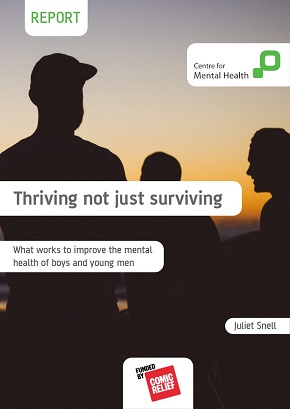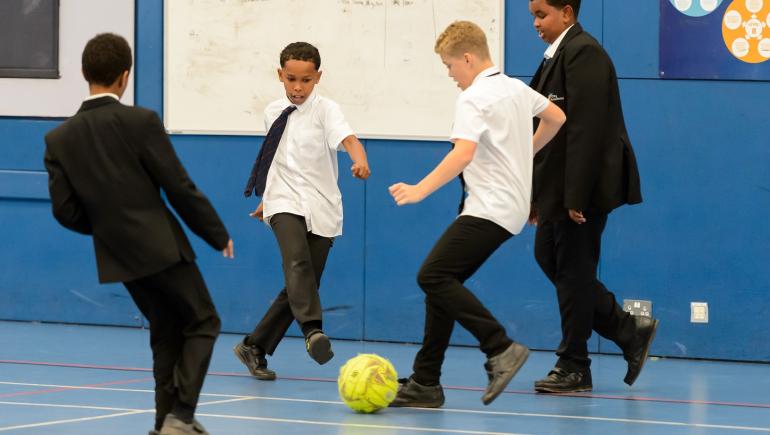Sport can help to boost engagement from boys and young men in mental health support, according to a report published by the Centre for Mental Health.
‘Trying something new: Improving boys’ and young men’s mental health through sports and creative activities’ is based on an evaluation of Comic Relief’s three-year ‘Thriving Not Just Surviving’ programme which offered tailored mental health support for boys and young men.
The programme also aimed to tackle stigma and gender stereotypes that they face in relation to their mental health. Key report points include:
 supporting mental health through sporting and creative activities can engage boys and young men who might find traditional services less welcoming or relevant.
supporting mental health through sporting and creative activities can engage boys and young men who might find traditional services less welcoming or relevant.- skilled youth workers partnering with mental health practitioners can combine to improve both engagement and support. These approaches can also build up young men’s skills and confidence to become peer supporters and champions of change.
- Covid-19 pandemic had a profound effect on boys’ and young men’s stress and anxiety levels. This was particularly marked for young men experiencing racial injustice. Projects that responded to structural inequalities and injustices were better able to engage marginalised young men.
- The report calls on the NHS to develop services based on the Thriving Not Just Surviving approach, combining youth work with mental health support. It also says that the mental health workforce needs to be more reflective of the communities it seeks to serve.
Kadra Abdinasir, Associate Director for Children and Young People at the Centre for Mental Health, said: “Thriving Not Just Surviving shows that boys and young men will engage with mental health support if it’s offered in ways they find relevant and attractive. Sports, social and creative activities offer a more informal and positive approach to mental health than clinical services.
FUNDAMENTAL
“The NHS and local councils need to link up with voluntary and community sector youth organisations as part of their mental health support offer for young people. Too often these organisations are seen as marginal to mainstream mental health provision rather than being a fundamental part of the system. This needs to change.
“Many of the projects in Thriving Not Just Surviving have directly addressed longstanding inequalities and injustices. Mental health services need to be prepared to address social, economic and racial inequality to be relevant to young men’s lives and responsive to their needs.”
Comic Relief’s Thriving Not Just Surviving programme invested £3.2million in UK-based projects to support vulnerable young men aged 11 to 20 with mental health, helping over 11,000 men over three years.
SUPPORT
Samir Patel, CEO of Comic Relief added: “The pandemic has taken a huge toll on the nation’s mental health, with young people being some of the hardest hit. Young men and boys, and in particular those from Black and minority communities, can face many barriers to accessing the support they need and risk being overlooked.
“This report outlines the best ways to engage young men by including sport programmes, incorporating youth workers and ensuring staff are diverse and reflect the young people they are helping. I hope these findings will help more organisations engage young men in accessing the mental support they deserve.”








